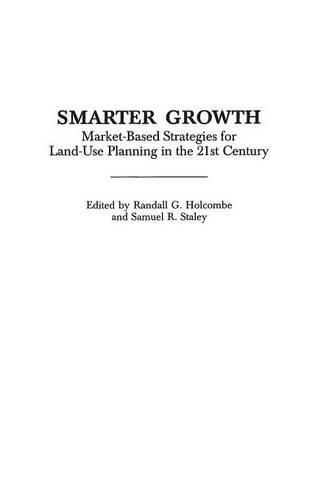
Smarter Growth: Market-Based Strategies for Land-Use Planning in the 21st Century
(Hardback)
Publishing Details
Smarter Growth: Market-Based Strategies for Land-Use Planning in the 21st Century
By (Author) Randall G. Holcombe
Edited by Samuel R. Staley
Bloomsbury Publishing PLC
Praeger Publishers Inc
30th August 2001
United States
Classifications
Tertiary Education
Non Fiction
Central / national / federal government policies
Economics
Regional, state and other local government policies
333.730973
Physical Properties
Hardback
304
Description
At the transition from the 20th to the 21st Century, land use planning and growth management have become two of the most controversial issues in state and local government policy. Primarily the province of local government until the 1970s, state governments have become increasingly involved in land use planning. In the 1990s Vice President Gore's promotion of Smart Growth has brought it into the national arena, while President Clinton has devoted considerable time to land use, land preservation, and urban development issues. Critically examining government land use policies and arguments supporting them, the contributors explore market alternatives to government land use planning. Despite the apparent popularity of government restrictions on land use, the scholars writing for this volume advocate a more market-based approach. Showing that the problems of sprawling development have been misunderstood and overstated, they argue that land use policy can be better improved through market mechanisms than by the central planning of land use bureaucracies.
Author Bio
RANDALL G. HOLCOMBE is DeVoe Moore Professor of Economics at Florida State University. He is also Chairman of the Research Advisory Council of the James Madison Institute, a Tallahassee-based think tank specializing in issues facing state governments. The author of eight books, his primary areas of research are public finance and economic analysis of policy issues. SAMUEL R. STALEY is Director of the Urban Futures Program at Reason Public Policy Institute in Los Angeles. He is the author of The Sprawling of America: In Defense of the Dynamic City, A Line in the Land: Urban-Growth Boundaries, Smart Growth, and Housing Affordability, The Vanishing Farmland Myth and the Smart Growth Agenda.
